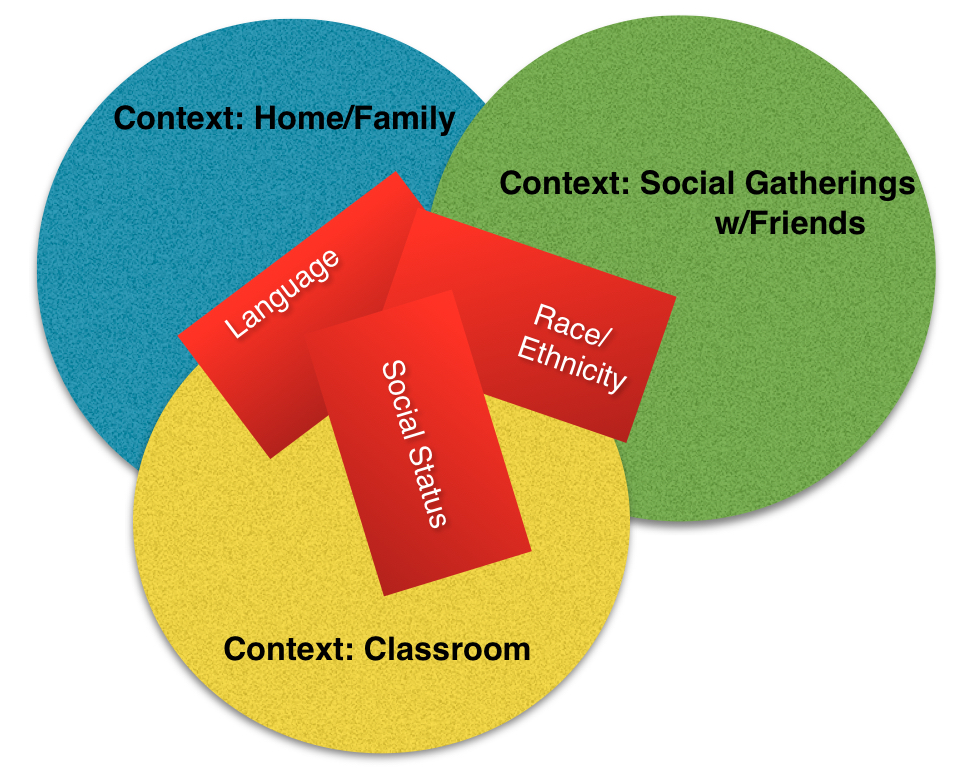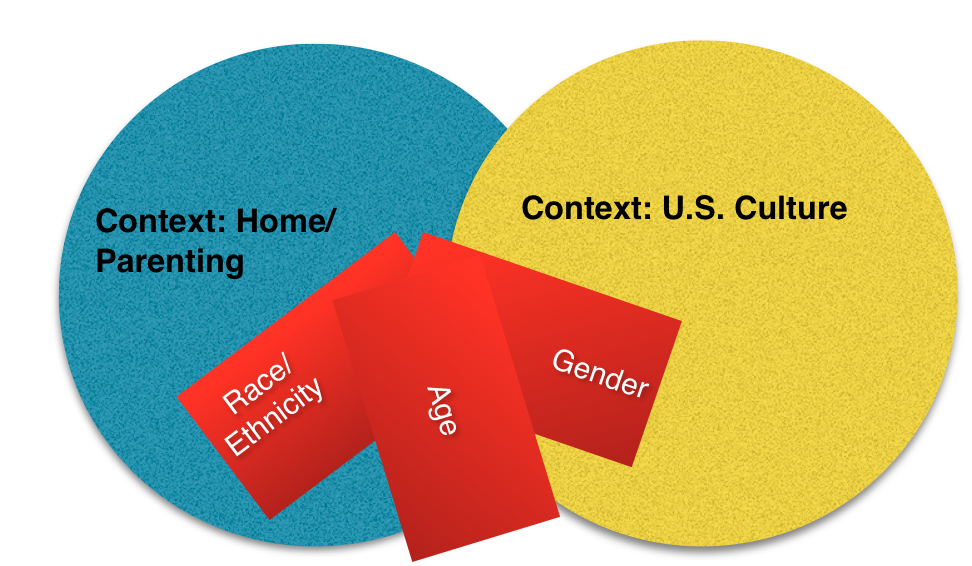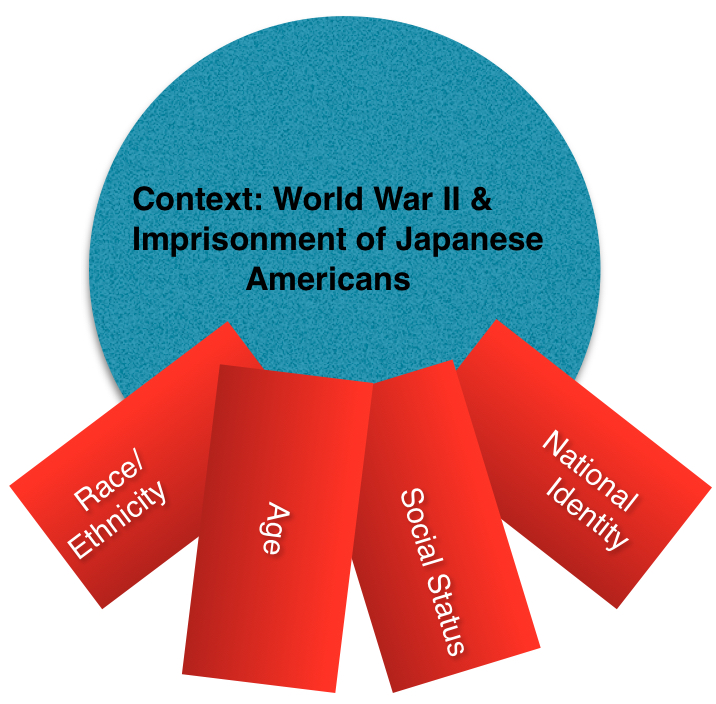Ethnicity & Race
Race refers to one way that a person's genetic makeup impacts their culture. Ethnicity refers to a cultural construct that is used to describe large groups of people. For example, African American, Asian American, Caucasian or White. There are many different ethnic identities, and it is possible for a person to identify with more than one ethnicity. Race and ethnicity are a part of every person's culture, although these identities may become invisible for people who are part of the ethnic or racial majority.
Three Ways to Speak English
In this video Jamilia Lyiscott describes the different ways in which she uses the spoken English language to articulate herself within the context of the classroom, with friends, and with her parents. The ways in which she uses language across these contexts makes salient differing dimensions of her identity (e.g., young, black, female) as a she deconstructs what it means to be articulate (e.g., social status/SES/perceived education/intelligence).

Playback problems? This video is available on YouTube at https://youtu.be/k9fmJ5xQ_mc
How to Raise a Black Son in America
In this video Clint Smith describes playing water guns as an adolescent with his white friends in a parking lot at night. He goes on to describe his father’s fearful response in an effort to protect him within the context of U.S. culture which views young black men as dangerous, threatening, and violent. Smith deconstructs the educational strategies that parents of young black men utilize in an effort to keep their children from being mistakenly killed or incarcerated.

Playback problems? This video is available on YouTube at https://youtu.be/Us70DN2XSfM
Why I Love a Country that Once Betrayed Me
In this video George Takei describes his experiences as a young Japanese American whose family was suddenly seen with fear, suspicion, and hatred within the context of World War II and the bombing of Pearl Harbor. Takei describes how fear of Japanese Americans during the early 1940s led to his family to be imprisoned in an internment camp, forcing the family to start over economically upon their release. Through deconstructing personal definitions of democracy and patriotism, he is able to integrate his identities as a gay Japanese American.

Playback problems? This video is available on YouTube at https://youtu.be/LeBKBFAPwNc
Immigrant Voices Make Democracy Stronger
Playback problems? This video is available on YouTube at https://youtu.be/0d6iSvF1UmA
We Need to Talk About an Injustice
Playback problems? This video is available on YouTube at https://youtu.be/c2tOp7OxyQ8
Through the Eyes of an Illegal Immigrant
Playback problems? This video is available on YouTube at https://youtu.be/46wWjKTn4Ac
How We're Priming Some Kids for College and Others for Prison
Playback problems? This video is available on YouTube at https://youtu.be/-2Dj9M71JAc
America's Native Prisoners of War
Playback problems? This video is available on YouTube at https://youtu.be/8tEuaj4h8dw
Exploration Questions
- How would you describe your racial & ethnic identities?
- In what contexts, if any, do you feel that your race & ethnicity are privileged identities?
- In what contexts do you experience oppression because of your race & ethnicity?
- How does your race & ethnicity interact with other identities that you hold, such as your gender, sex, sexual orientation, and age?
- What is your comfort level working with clients whose racial & ethnic identities differ from your own?
- How comfortable are you talking about race and ethnic identities with clients?
- In what situations might race & ethnicity be salient in the counseling relationship?
- How might you bring up race and ethnicity with your counseling clients?
- How important do you think it is for counselors to be knowledgable of their own racial, ethnic, and other cultural identities?
- What activities might counselors engage in to become more aware of how their own cultural identities impact their world views, values, biases, beliefs, ways of working with clients, and ways of relating to clients?
- What were your reactions to the videos on this page?
- Were there some you were drawn to?
- Were there any that elicited strong reactions?
- How did the videos on this page demonstrate the relationship between race & ethnicity and other cultural factors such as age, gender, family culture, the culture of the United States, and other cultures?
